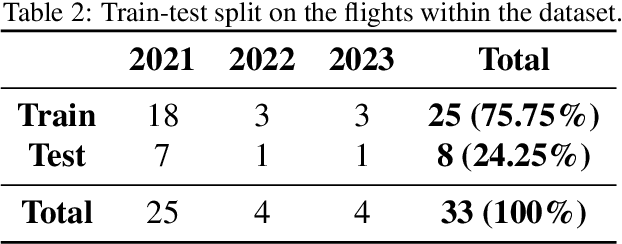Oier Penagarikano
A Hybrid Probabilistic Battery Health Management Approach for Robust Inspection Drone Operations
Apr 24, 2024



Abstract:Health monitoring of remote critical infrastructure is a complex and expensive activity due to the limited infrastructure accessibility. Inspection drones are ubiquitous assets that enhance the reliability of critical infrastructures through improved accessibility. However, due to the harsh operation environment, it is crucial to monitor their health to ensure successful inspection operations. The battery is a key component that determines the overall reliability of the inspection drones and, with an appropriate health management approach, contributes to reliable and robust inspections. In this context, this paper presents a novel hybrid probabilistic approach for battery end-of-discharge (EOD) voltage prediction of Li-Po batteries. The hybridization is achieved in an error-correction configuration, which combines physics-based discharge and probabilistic error-correction models to quantify the aleatoric and epistemic uncertainty. The performance of the hybrid probabilistic methodology was empirically evaluated on a dataset comprising EOD voltage under varying load conditions. The dataset was obtained from real inspection drones operated on different flights, focused on offshore wind turbine inspections. The proposed approach has been tested with different probabilistic methods and demonstrates 14.8% improved performance in probabilistic accuracy compared to the best probabilistic method. In addition, aleatoric and epistemic uncertainties provide robust estimations to enhance the diagnosis of battery health-states.
 Add to Chrome
Add to Chrome Add to Firefox
Add to Firefox Add to Edge
Add to Edge